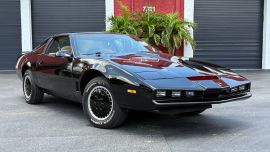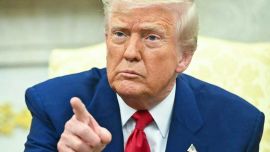The relaunch of bilateral relations between Brazil and France clash with the thorny subject of the stalled free-trade agreement between the European Union and Mercosur blocs – after 25 years of negotiations, the once-heralded accord faces a French blockade in its final stretch.
While visiting the South American giant, French President Emmanuel Macron claimed last week that the EU-Mercosur deal is “very bad” for both parties. He proposed “a new one,” taking into account “the issue of biodiversity and climate."
In 1999, the European bloc and Argentina, Brasil, Uruguay and Paraguay, on the South American side, started negotiating a sweeping treaty, seeking to eliminate most customs tariffs between two areas that represent over 700 million consumers.
If adopted, the deal would allow South American agricultural powers to export meat, sugar, rice, honey, soy, etc. to Europe. The EU, in turn, would export cars, machinery and pharmaceutical products, among others.
Despite a political agreement being reached in 2019, several of the 27 EU member of states (France among them) have blocked its adoption, voicing opposition to key aspects of the deal.
But Germany, an auto industrial power, and Spain, are very much in favour of the agreement, which would open up new markets for European firms with a potential customer base of 270 million new consumers.
However, in European nations where the agricultural sector has a real weight or cultural importance – such as France, Ireland or the Netherlands – are fiercely opposed.
Regardless of its economic dimension, “this draft of the agreement has taken a much more significant geopolitical dimension” than what it might have had in 1999, notes Elvire Fabry, a researcher at the European Jacques Delors institute.
“Brazil has become very close to China, which has led to greater political alignment between both countries,” until an agreement was signed in 2023 to allow commercial exchanges in their own currencies, she added.
With that Brazil-China approach, and climate transition which makes the abundant supply of certain raw materials necessary, the EU has additional incentives to strengthen their trade with South America, a region rich in lithium, copper, iron and cobalt.
In late January, Mercosur foreign ministers called in Asunción for a closing of the trade agreement “as soon as possible."
French farmers fear that, if the deal is adopted, the market will be flooded with meat from Brazil and Argentina, without observing European health and production regulations.
“French ranchers will not be competitive to those from Brazil,” said economist Maxime Combes.
The agreement establishes beef export quotas to the EU of some 99,000 tonnes and the elimination of tariffs for a further 60,000 tonnes of meet imported from Mercosur.
The level remains, however, far from beef production levels in France, which in 2022 amounted to 1.361 billion tonnes, according to data from the French Livestock Institute.
Given the agricultural protests which shook France and other European countries back in January, French President Emmanuel Macron has reiterated in recent weeks that his country will not green-light the agreement in its current form.
France claims that the agreement reached in 2019 includes guarantees on the observance of the Paris Agreement on climate and mirror clauses on health and production regulations to prevent unfair competition.
The spokesman of the European Commission, negotiating on behalf of the 27 EU countries, stated last week that negotiations are ongoing.
According to Fabry, the Community’s Executive Branch seeks “a basis for negotiation which helps offer guarantees to France,” in a context of doubts on the method for its adoption.
“Advancing in this context would be catastrophic,” said one diplomatic source, in reference to agricultural protests in Europe.
Former Brazilian trade secretary Welber Barral believes that “there is a agricultural protectionism problem” and that “France is not helping."
Mercosur is also raising its voice.
“The internal problems of each country should not be transferred in the least to potential international trade agreements,” said Argentina's Foreign Minister Diana Mondino in February, who asked people “not to use these treaties as a scapegoat."
– TIMES/AFP




















Comments